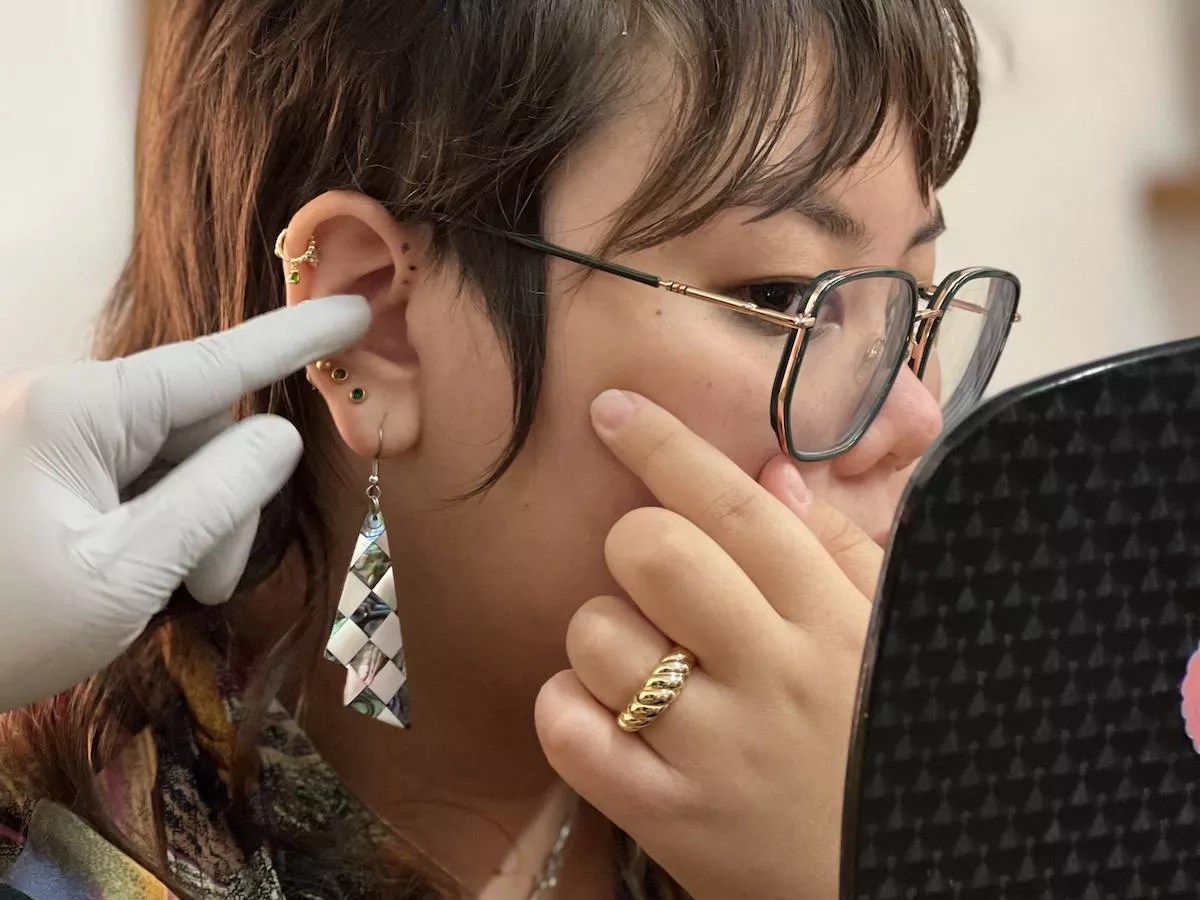
Photo by Katherine Wong/SFMN

Audio By Carbonatix
When Bella Ramos, 25, who identifies as nonbinary, had their eyebrow piercing develop complications a few months after getting it pierced for the first time, they decided to do more research into safe piercings around South Florida.
“I started looking around to see if there were any associations that deal with regulations or rules in regards to piercings, taking care of them and how they were administered,” Ramos says. “It was definitely scary to see my fresh piercing on my pillow one day. I was irritated to see my investment going down the drain. I needed to know what I could do to prevent this from happening again.”
Since then, Ramos has been pierced three more times, all by piercers who are members of the Association of Professional Piercers (APP). All three piercings have healed without incident.
APP, while not a direct point of accreditation for piercers, serves as an educational platform for those interested in the industry. It offers classes for further education for piercers; provides resources for educators, piercers, health professionals, and legislators; and hosts an annual piercing conference.
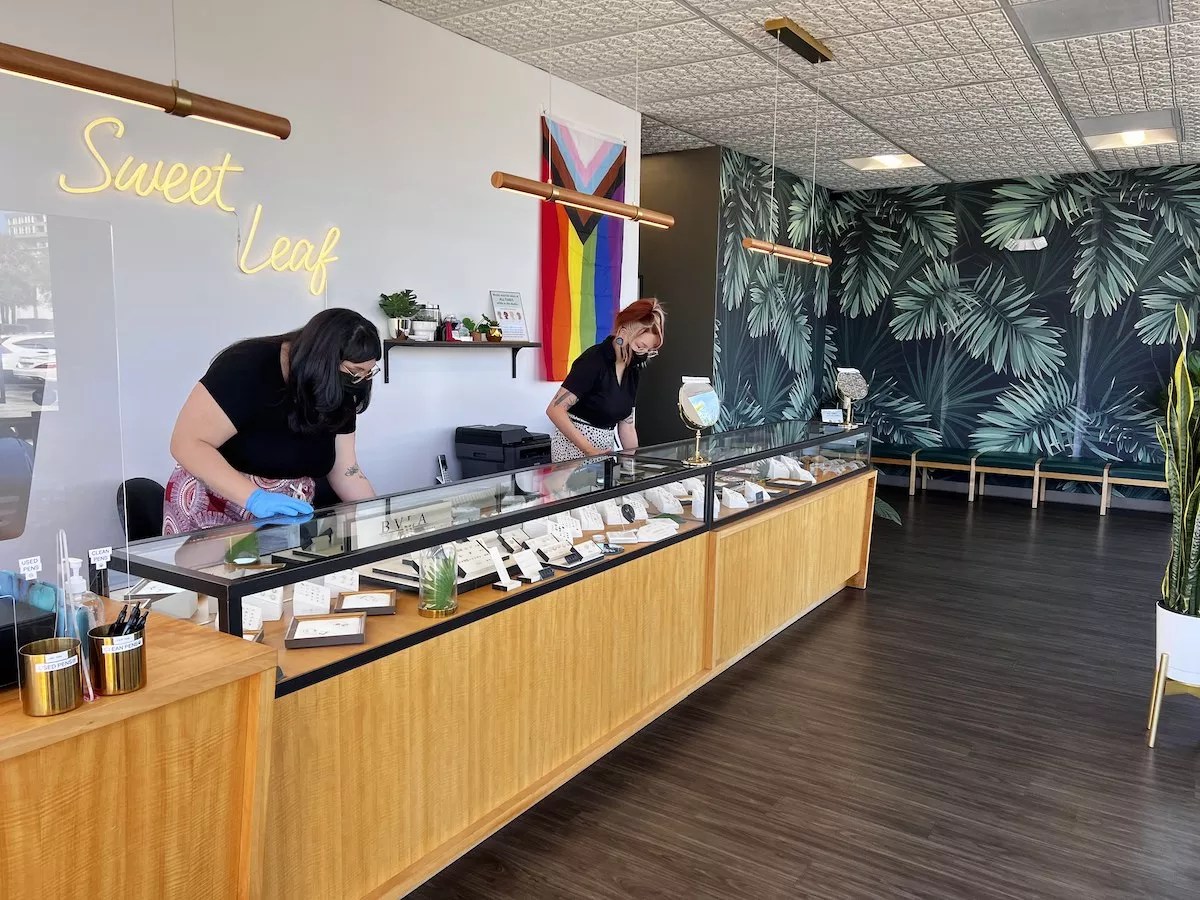
The lobby at Sweet Leaf Body Arts, a tattoo and piercing studio in Fort Lauderdale
Photo by Katherine Wong/SFMN
In order for a professional piercer to become an APP member, they must meet a rigorous list of requirements, including providing copies of CPR and bloodborne pathogens certifications, passing an environmental criteria test, and leading a walkthrough of their studio space.
As the association is a nonprofit organization operating worldwide, it cannot provide accreditation for piercers. On top of that, certification requirements differ from state to state. In Florida, an initial formal training course and CPR certification are required to become a certified piercer; beyond that, further training and refresher courses are optional.
Professional piercer Margo Dellaquila, who offers high-end piercings at Sweet Leaf Body Arts, an appointment-only tattoo and piercing studio in Fort Lauderdale, started her three-year piercing apprenticeship at 21 and has been professionally piercing clients for five years.
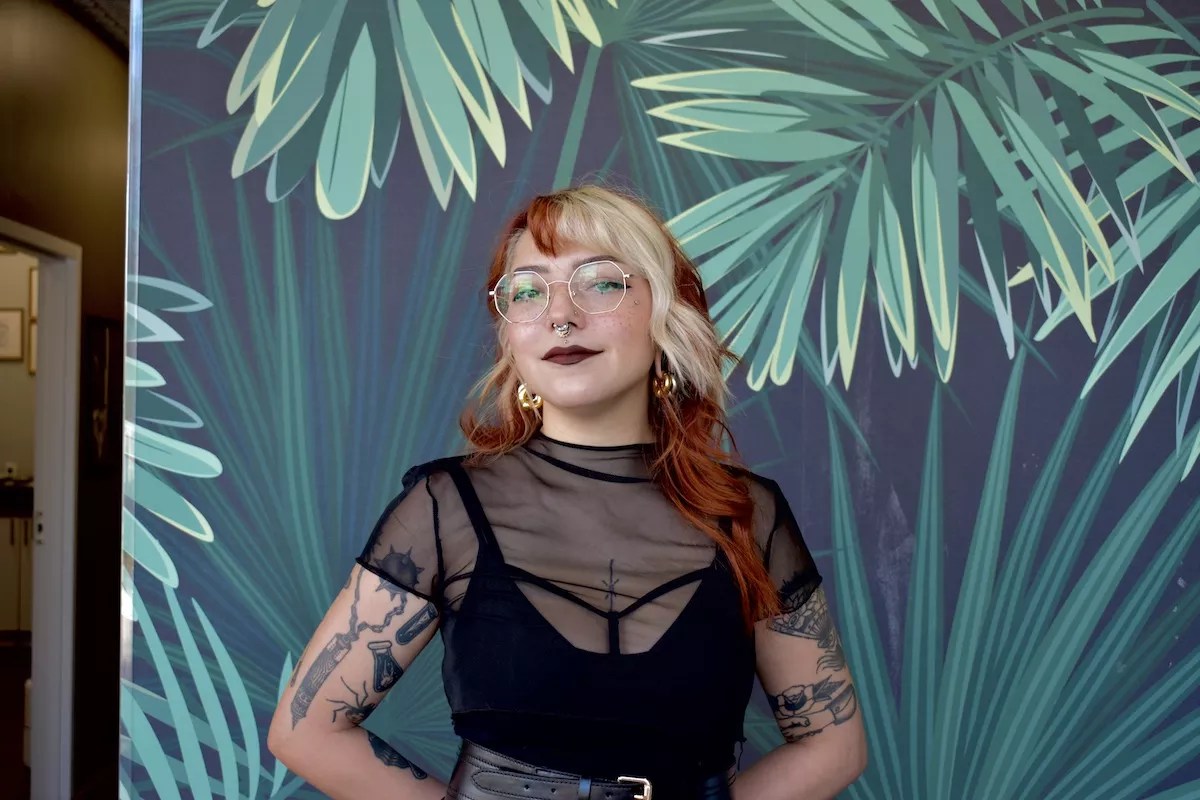
Margo Dellaquila of Sweet Leaf Body Arts
Photo courtesy of Brenda Claros
She has been an APP member since she started her apprenticeship.
“I became an APP member pretty early on in my apprenticeship because to join the APP, you don’t have to be a piercer,” Dellaquila explains. “It just seemed like a good organization to educate clients on what we were offering. It gave us an opportunity to explain why we were working hard to bring quality jewelry into the studio and to offer these higher-end experiences.”
The APP certificate, displayed in the studio, also served as a point of discussion for many of Dellaquila’s clients, who had found her through their own research into the association. Most came after watching educational videos from other APP members across social-media platforms like TikTok and YouTube.
Rita Martinez, who is currently working on her membership with the association, says the piercing scene in South Florida has changed since she began her journey back in the 1990s. Back then Martinez apprenticed at Tattoos by Lou in South Beach and has since pierced all manner of body parts.
“My clients tell me that I’m very comforting for them,” Martinez says. “It’s important for them to know that it’s no longer just tough guys hanging around a tattoo studio. You should feel comfortable and safe when you’re getting a procedure done. I make it an atmosphere here, you know? It’s chill here.”
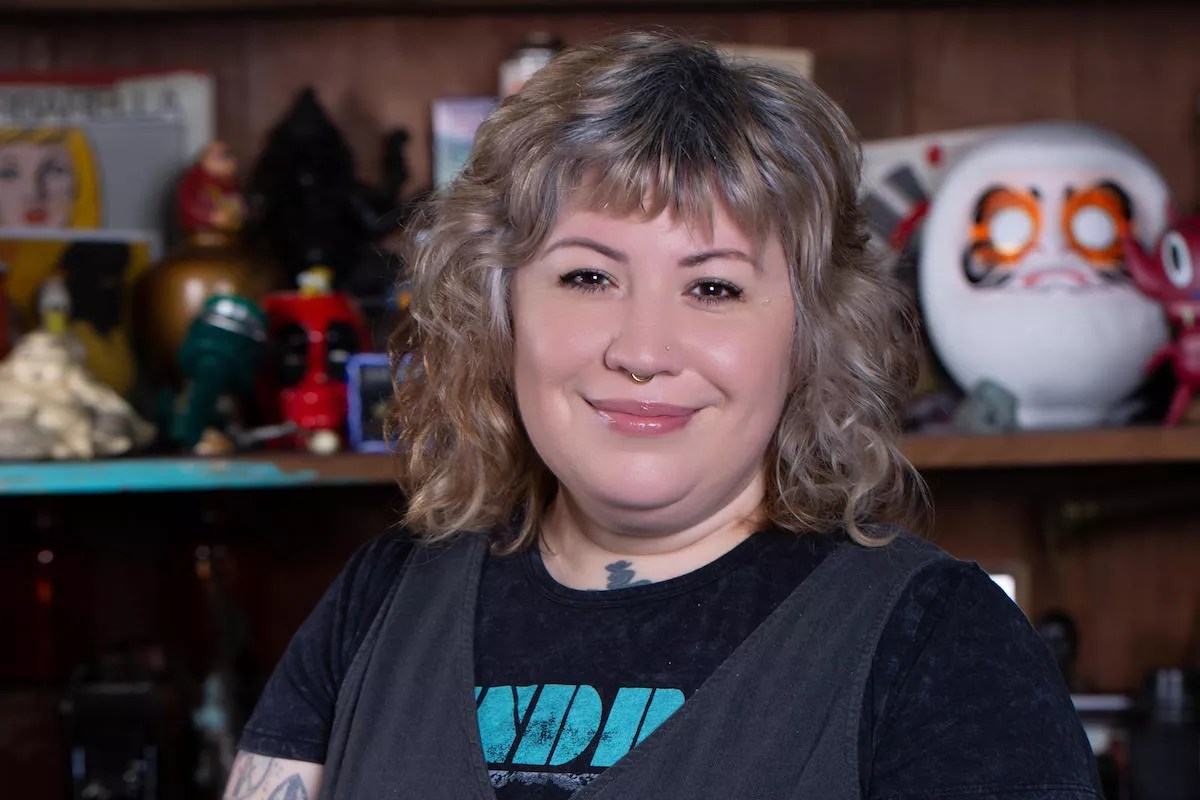
Rita Martinez of Lost Lake Tattoo
Photo courtesy of Sureel Photography
Martinez, who works out of a studio space at Lost Lake Tattoos in Miami Lakes, adds that piercings and tattoo parlors no longer carry the stigma of a dicey environment. The piercing industry is a service industry, and customer service is at the forefront.
Although the APP operates as an educational platform for piercers and clients, membership is voluntary. That means it’s up to the piercers themselves to take classes and submit videos to ensure they meet the association’s requirements, from educational standards to a properly equipped and clean environment.
“I find that the folks that are APP members tend to be very, very good at what they do,” says Jef Saunders, a Michigan-based piercer who serves on APP’s board of directors. “You typically don’t put that kind of effort into learning something like this and deliver lackluster piercings. People that aren’t familiar with safe piercing practices are sometimes surprised by the efforts we go to to make things as safe as possible.”
Saunders, who also contributed to the book The Piercing Bible, emphasizes that safety and cleanliness are paramount when getting a piercing, regardless of placement on the body.
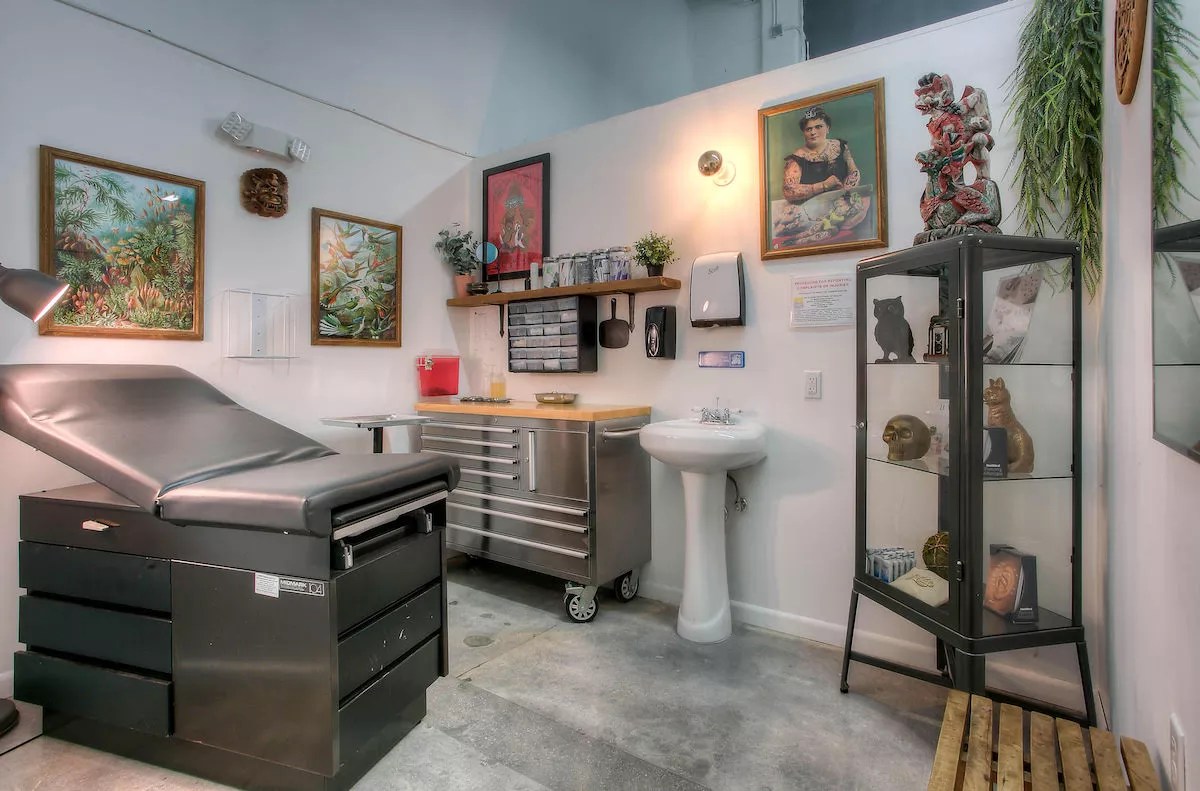
Rita Martinez’s piercing studio
Photo courtesy of Sureel Photography
“I can only use the United States as an example, but [business that offer piercings] with jewelry included for less than $50 – it’s going to be extremely hard for a piercing shop to deliver safe piercing for that price,” Saunders says.
As piercings are most often permanent body fixtures, Dellaquila, Martinez, and Saunders advise that consumers research providers before going in for a piercing.
“Just because someone isn’t a part of the APP doesn’t make them a bad piercer,” Dellaquila says. “It’s always important to do your own research when looking, even if they are an APP member. The APP doesn’t dictate education level or skill; they only dictate environmental criteria and cleanliness.”
Piercings are permanent fixtures that can easily get infected or rejected by the body, and it’s important to learn the risks.
“You spend money on shoes, and you spend money on your clothes,” Martinez notes. “Why not spend money on your body? You’re getting what you pay for. You’re getting the experience, you’re getting the quality, and you’re getting my attention for everything.”